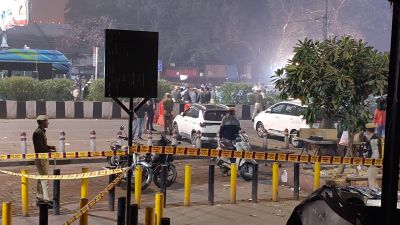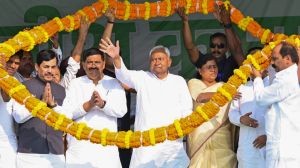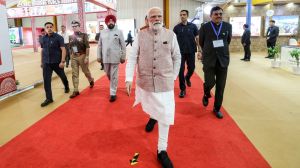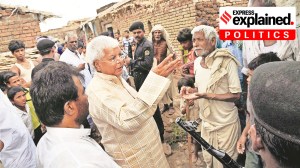A House for women in UK
Sisters Maria and Angela Eagle celebrate their election victories for the Labour Party in Liverpool after becoming the first twins to enter...

Sisters Maria and Angela Eagle celebrate their election victories for the Labour Party in Liverpool after becoming the first twins to enter British Parliament following general elections.
LONDON, May 5: ANN.Margaret. Harriet. Claire. Yvette. Marjorie. Fiona. On and on the list went, 120 women’s names in all.
Britain’s election is not just a victory for the Opposition Labour Party. It is a victory for women, who nearly doubled their numbers in Parliament. And Prime Minister Tony Blair has already named five women to cabinet posts, including one of the toughest briefs, Northern Ireland.
“It is good news for democracy because women in the country will see women in Parliament,” said Labour lawmaker Harriet Harman, who was appointed to the cabinet on Saturday to head the Social Security Department.
“It will drive to the forefront of the political agenda a whole range of issues, like child care, like opportunities for women at work, the balance between work and home,” she said.
The male clubiness of the House of Commons will face a drastic change. Pundits were speculating whether the shooting gallery would be turned into a day care center. The barber shop is already being converted into a more sophisticated salon to attract women as well.
Although Margaret Thatcher became Europe’s first woman Prime Minister in 1979, British politics has been a male bastion. Thatcher herself did not have a single woman in her cabinet and her successor, John Major, had only two.
Blair’s senior appointments on Saturday were Harman, George Robertson as Defense Secretary, Marjorie Mowlam as Northern Ireland Secretary, Donald Dewar as Scottish Secretary, Ron Davies as Welsh Secretary, and Clare Short as Secretary for International Development.
Mowlam has one of the toughest jobs in the cabinet and inherits a daunting set of problems including how to continue with peace negotiations on Northern Ireland’s future and defusing tensions between Protestants and Catholics over the upcoming marching season.
Margaret Beckett, who was interim leader of the Labour Party in 1994 following the death of John Smith, has the high-profile job of promoting trade and industry as president of the Board of Trade. Ann Taylor will be leader of the House of Commons.
A record 685 women were among the 3,718 candidates vying for 659 seats in the House of Commons in Thursday’s election.
But it was Labour’s affirmative action program was the key to nearly doubling the number of women in the new parliament.
Labour’s fielded a record 158 women candidates, many in marginal seats. The party’s landslide victory catapulted 102 Labour women into the House of Commons. The Conservatives, who were trounced, will have only 13 women lawmakers.



- 01
- 02
- 03
- 04
- 05




























